Shenzhen Wesort Optoelectronics Co., Ltd.
Address:Building 29, Longwangmiao Industrial Zone, Fuyong street, Bao'an District, Shenzhen, Guangdong Province, China.
Phone:+86 181 2370 6862
The global demand for hazelnuts continues to rise, driven by the growth of confectionery, bakery, and healthy snack markets. As consumption increases, so does the importance of quality control. Hazelnut processors face mounting pressure to deliver defect-free products that meet strict food safety regulations and consumer expectations.
Manual sorting is slow, inconsistent, and highly dependent on labor availability. Workers can easily miss subtle defects, leading to reduced quality and higher rejection rates in international markets. To stay competitive, processors need automated sorting technologies that guarantee precision and consistency.
Hazelnuts may have a variety of defects, which will have a significant impact on the quality of hazelnuts:
1. Insect damage – reduces market value and creates food safety risks.
2. Mold and discoloration – threatens both taste and compliance with food safety standards.
3. Wrinkled or shriveled kernels – affect appearance and consumer acceptance.
4. Broken or fragmented kernels – lead to weight loss and inconsistent grading.
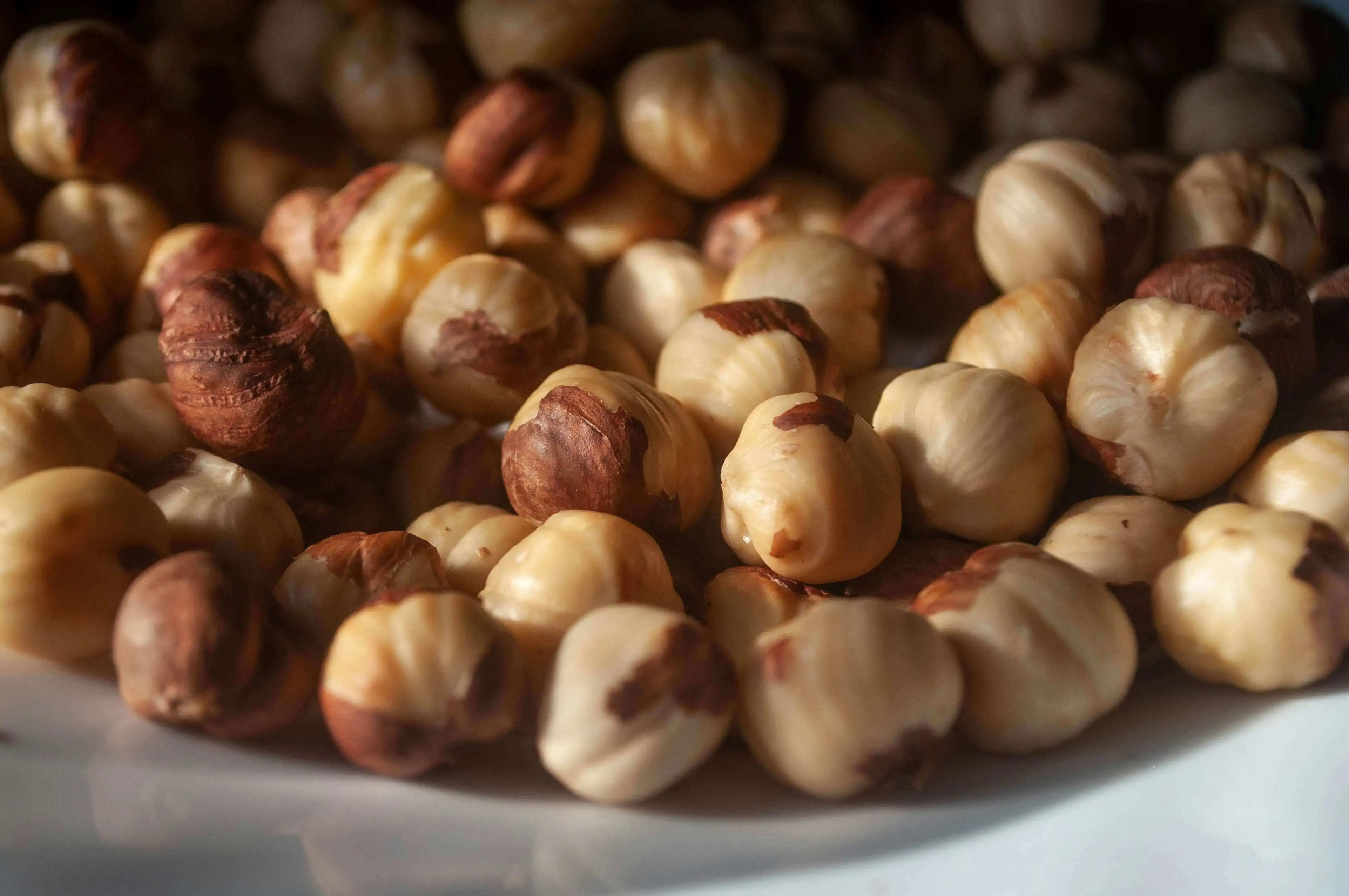
Raw hazelnuts require careful removal of hidden insect damage, shells, and physical defects before further processing.
Roasted hazelnuts need advanced detection to separate unevenly roasted kernels, moldy nuts, and foreign materials like shells, twigs, or stones.
Efficiency and Cost Pressures
With seasonal harvests and high-volume demand, processors cannot afford bottlenecks. Inefficient sorting translates into higher labor costs, wasted material, and lower profits.
The Role of Hazelnut Color Sorters
Modern hazelnut color sorters address these challenges by:
Precisely identifying and removing defective nuts through advanced optical and AI recognition.
Ensuring food safety and product consistency to meet international export standards.
Increasing yield and productivity by maximizing the ratio of good kernels to total processed volume.
1. Accuracy – Ability to detect even the smallest defects.
2. Intelligence – Equipped with AI deep learning and self-optimizing capabilities.
3. Ease of Use – Remote monitoring, intuitive interfaces, and simple maintenance.
4.Adaptability – Compatibility with different hazelnut varieties and both raw and roasted processing lines.
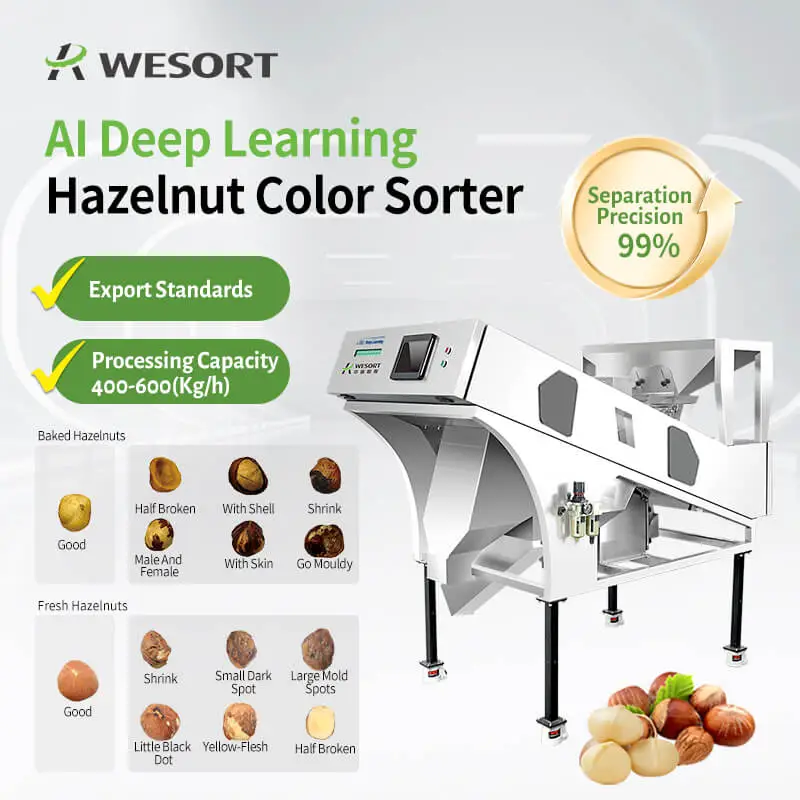
1. AI Deep Learning Recognition → Detects complex defects across multiple dimensions.
2. Smart Remote APP Control → Reduces human intervention and enables real-time monitoring.
3. Multi-dimensional Detection (color, shape, size, texture) → Guarantees consistent grading results.
4.Magnetic Levitation Ejectors → Fast, energy-efficient, durable removal of defective kernels.
Raw Hazelnuts: Efficiently remove insect-infested nuts, black spots, wrinkled kernels, broken pieces, and foreign materials.
Roasted Hazelnuts: Eliminate shells, unevenly roasted nuts, mold, broken halves, sticks, and stones with high precision.
For processors aiming to meet global demand and achieve long-term competitiveness, investing in advanced hazelnut sorting technology is no longer optional—it’s essential. WESORT hazelnut color sorters combine AI-powered precision, ease of use, and energy efficiency, ensuring higher product quality, reduced labor costs, and stronger market positioning.
Choosing WESORT means securing a reliable, high-performance solution for the future of hazelnut processing.
The global demand for hazelnuts continues to rise, driven by the growth of confectionery, bakery, and healthy snack markets. As consumption increases, so does the importance of quality control. Hazelnut processors face mounting pressure to deliver defect-free products that meet strict food safety regulations and consumer expectations.
Manual sorting is slow, inconsistent, and highly dependent on labor availability. Workers can easily miss subtle defects, leading to reduced quality and higher rejection rates in international markets. To stay competitive, processors need automated sorting technologies that guarantee precision and consistency.
Hazelnuts may have a variety of defects, which will have a significant impact on the quality of hazelnuts:
1. Insect damage – reduces market value and creates food safety risks.
2. Mold and discoloration – threatens both taste and compliance with food safety standards.
3. Wrinkled or shriveled kernels – affect appearance and consumer acceptance.
4. Broken or fragmented kernels – lead to weight loss and inconsistent grading.

Raw hazelnuts require careful removal of hidden insect damage, shells, and physical defects before further processing.
Roasted hazelnuts need advanced detection to separate unevenly roasted kernels, moldy nuts, and foreign materials like shells, twigs, or stones.
Efficiency and Cost Pressures
With seasonal harvests and high-volume demand, processors cannot afford bottlenecks. Inefficient sorting translates into higher labor costs, wasted material, and lower profits.
The Role of Hazelnut Color Sorters
Modern hazelnut color sorters address these challenges by:
Precisely identifying and removing defective nuts through advanced optical and AI recognition.
Ensuring food safety and product consistency to meet international export standards.
Increasing yield and productivity by maximizing the ratio of good kernels to total processed volume.
1. Accuracy – Ability to detect even the smallest defects.
2. Intelligence – Equipped with AI deep learning and self-optimizing capabilities.
3. Ease of Use – Remote monitoring, intuitive interfaces, and simple maintenance.
4.Adaptability – Compatibility with different hazelnut varieties and both raw and roasted processing lines.

1. AI Deep Learning Recognition → Detects complex defects across multiple dimensions.
2. Smart Remote APP Control → Reduces human intervention and enables real-time monitoring.
3. Multi-dimensional Detection (color, shape, size, texture) → Guarantees consistent grading results.
4.Magnetic Levitation Ejectors → Fast, energy-efficient, durable removal of defective kernels.
Raw Hazelnuts: Efficiently remove insect-infested nuts, black spots, wrinkled kernels, broken pieces, and foreign materials.
Roasted Hazelnuts: Eliminate shells, unevenly roasted nuts, mold, broken halves, sticks, and stones with high precision.
For processors aiming to meet global demand and achieve long-term competitiveness, investing in advanced hazelnut sorting technology is no longer optional—it’s essential. WESORT hazelnut color sorters combine AI-powered precision, ease of use, and energy efficiency, ensuring higher product quality, reduced labor costs, and stronger market positioning.
Choosing WESORT means securing a reliable, high-performance solution for the future of hazelnut processing.

In modern agriculture, food processing, and recycling, quality control plays a vital role. This is where an optical sorter comes in. Many buyers often ask: What is an optical sorter? What does it do? How much does it cost? And how is WESORT optical...
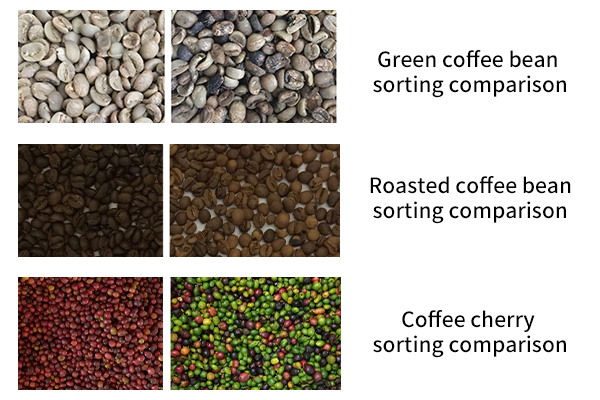
In the coffee industry, the quality of the final cup often depends on the smallest details during processing. One crucial step is removing defective beans, foreign materials, and color inconsistencies. This is where a coffee bean color sorter plays...

Coffee processing is a complex and meticulous task that involves several stages to transform raw coffee cherries into the high-quality beans we enjoy in our morning brew. One crucial step in this process is the sorting of coffee beans based on thei...

In the world of walnut processing, even the smallest imperfection can significantly impact product quality, market price, and brand reputation. Mold, insect damage, broken pieces, or inconsistent color are common defects that reduce the value of wa...
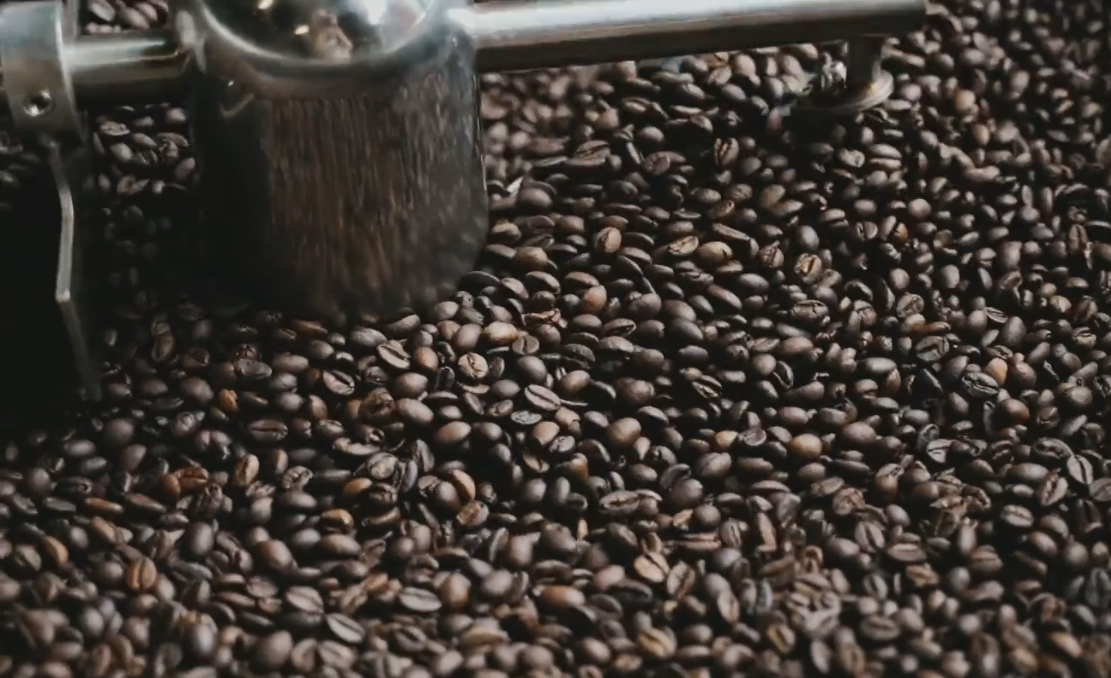
From green bean exporters to specialty coffee roasters, every producer faces the same challenge: how to remove defects efficiently while protecting valuable beans. Problems such as mold, fermentation damage, insect bites, black beans, broken beans,...
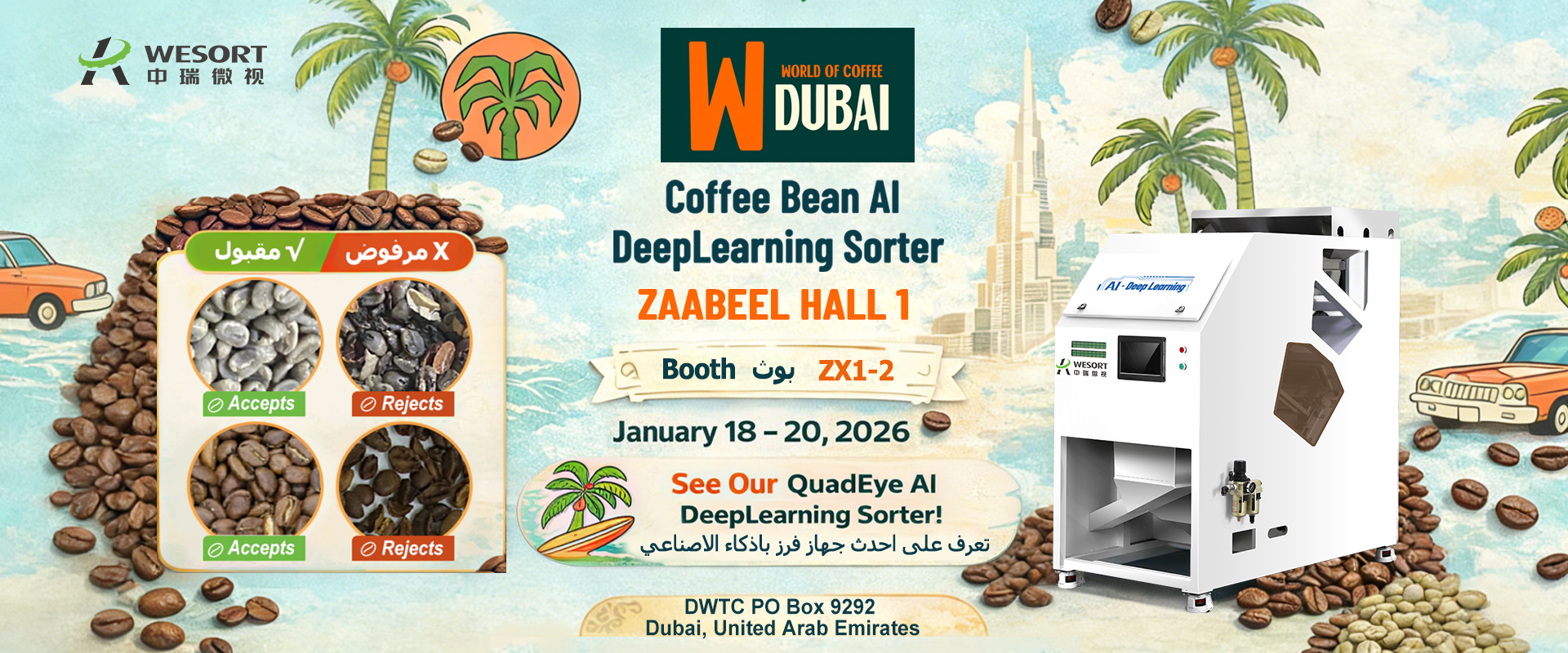
To meet the growing demand for premium and specialty coffee, sorting accuracy must go beyond traditional color-based systems. The QuadEye 360 AI Coffee Bean Sorter, developed by WESORT, represents the next generation of intelligent coffee bean so...

Dear friend, If you are attending World of Coffee Dubai 2026. we would like to invite you to visit WESORT. We will showcase our QuadEye 360 AI Coffee Bean Sorter, featuring 360° four-side inspection, AI deep learning models, near-zero breakage,...

Meta Description: Looking for the top hazelnut sorting machine manufacturer? WESORT offers advanced hazelnut color sorters with AI deep learning to efficiently remove defects, pests, and foreign materials. Boost your hazelnut processing efficienc...
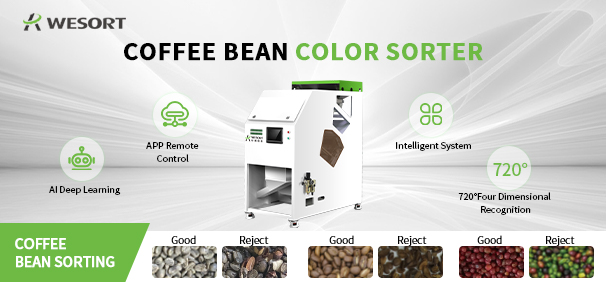
With the growing popularity of specialty coffee, the purity of coffee beans determines the aroma and taste of a cup of coffee. Achieving 99.9% purity requires high-performance coffee bean sorting equipment. Among Chinese coffee bean color sorter ma...
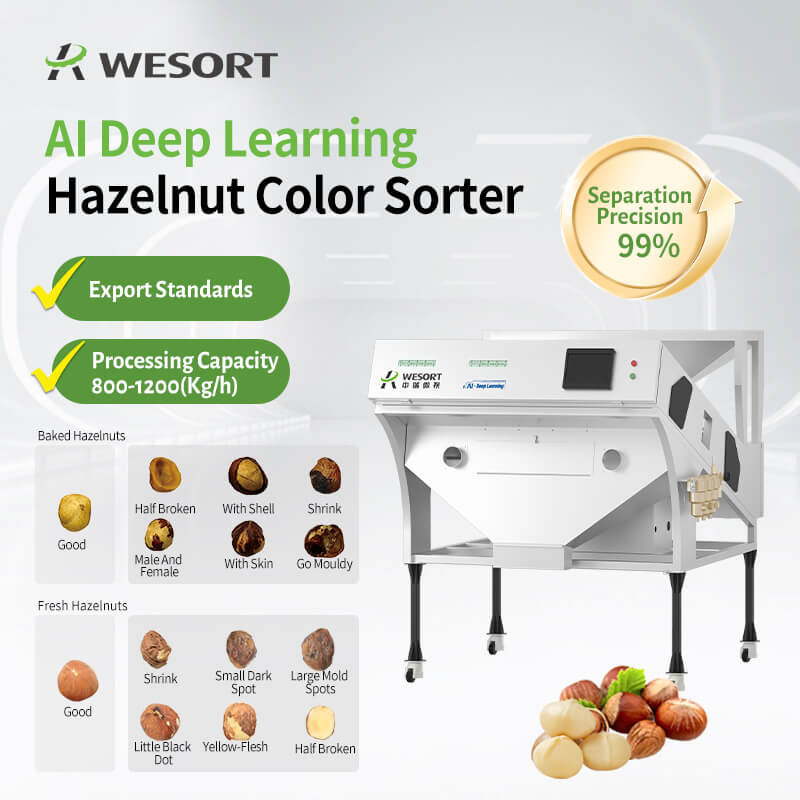
What's the most vexing issue in the hazelnut industry chain? It's not yield, but quality. Defects like mold, wrinkled skin, and foreign matter not only reduce product value but can also put export orders at risk. The solution isn't to increase the ...
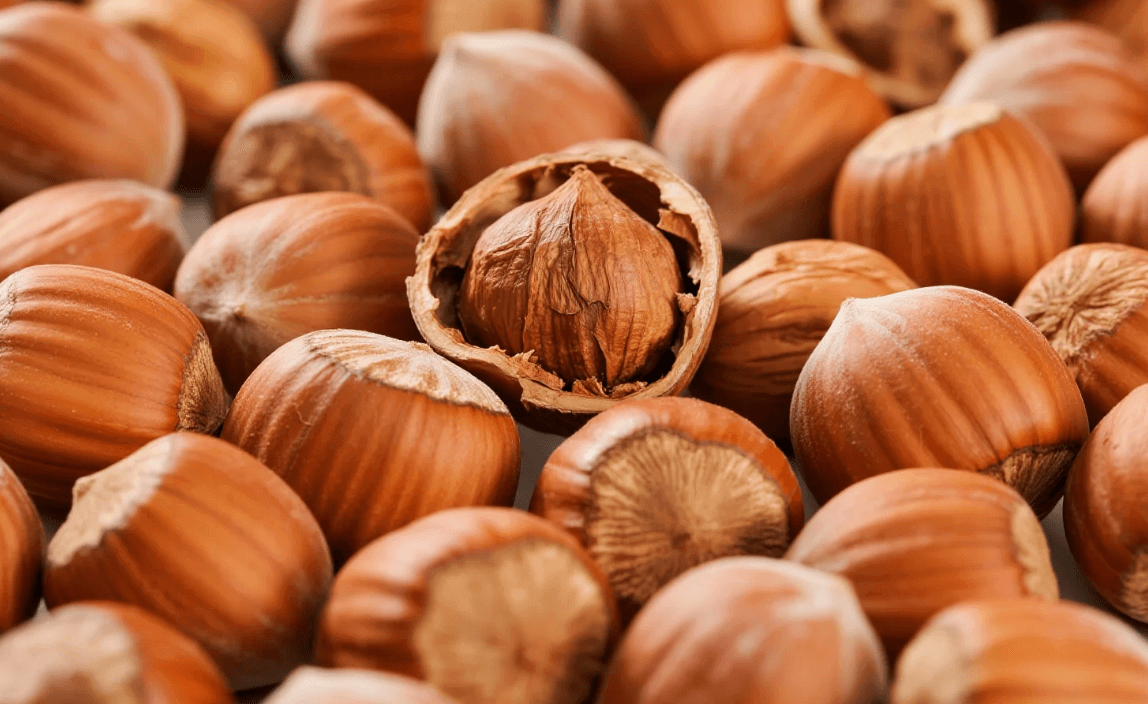
Every hazelnut tells a story—about the soil it grew in, the care during harvest, and the precision of its processing. Yet between farm and final product, hidden defects like mold, insect damage, and discoloration can turn premium hazelnuts into cos...

Plastic waste recycling is one of the most pressing challenges in today’s sustainability-driven world. Proper plastic sorting ensures high-quality recycled materials, reduces environmental impact, and improves profitability for recycling businesses...
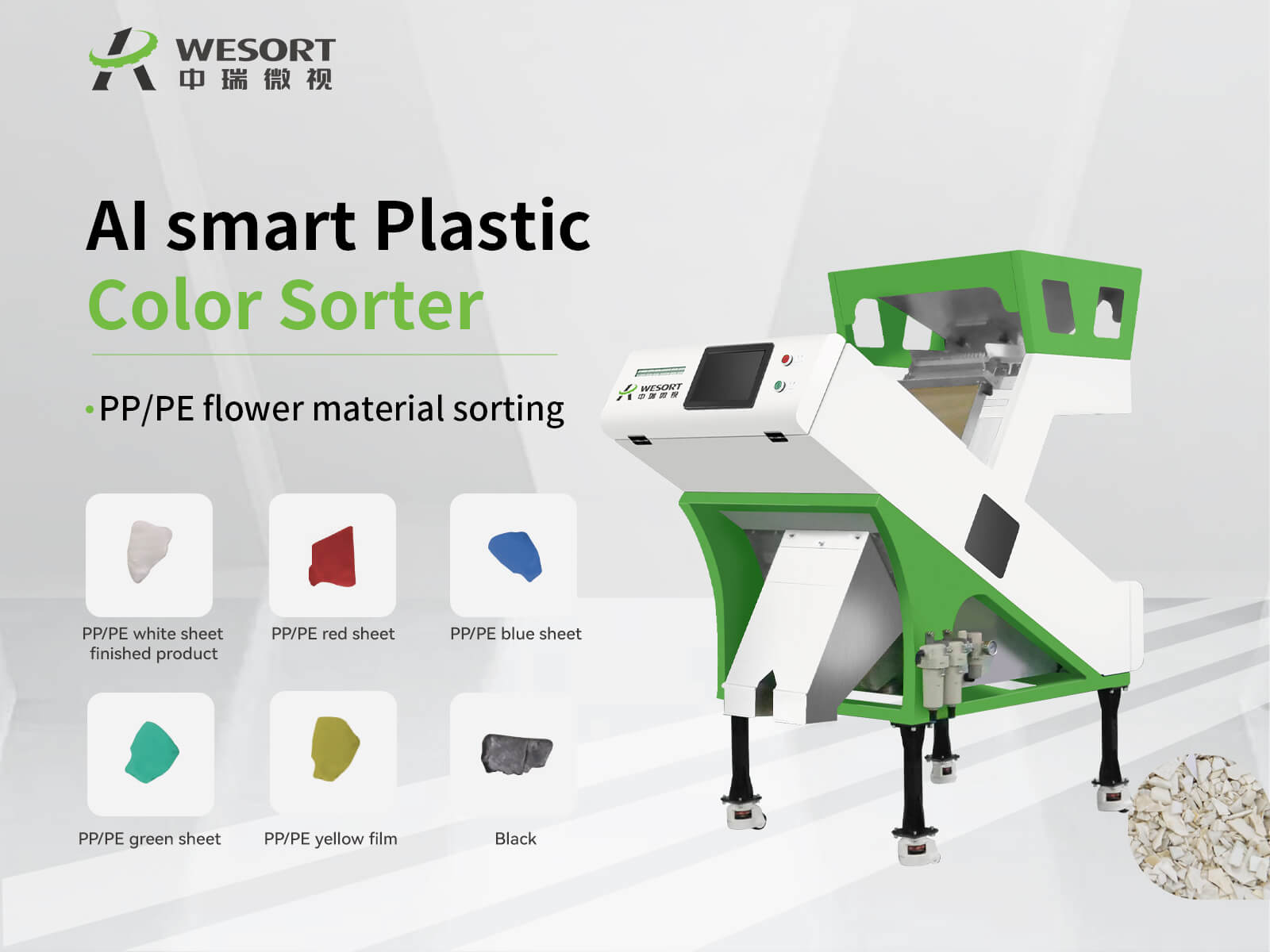
In the plastic recycling industry, purity and efficiency directly determine profitability. As global demand for recycled plastics increases, manufacturers need advanced solutions to separate impurities, improve yield, and ensure consistent product ...

In Mexico, coffee is more than just a drink — it’s a culture, a tradition, and a vital industry. Yet, challenges like impurities, pest damage, and uneven coloration often diminish the value of even the most carefully cultivated beans. At EXPO CAFÉ...
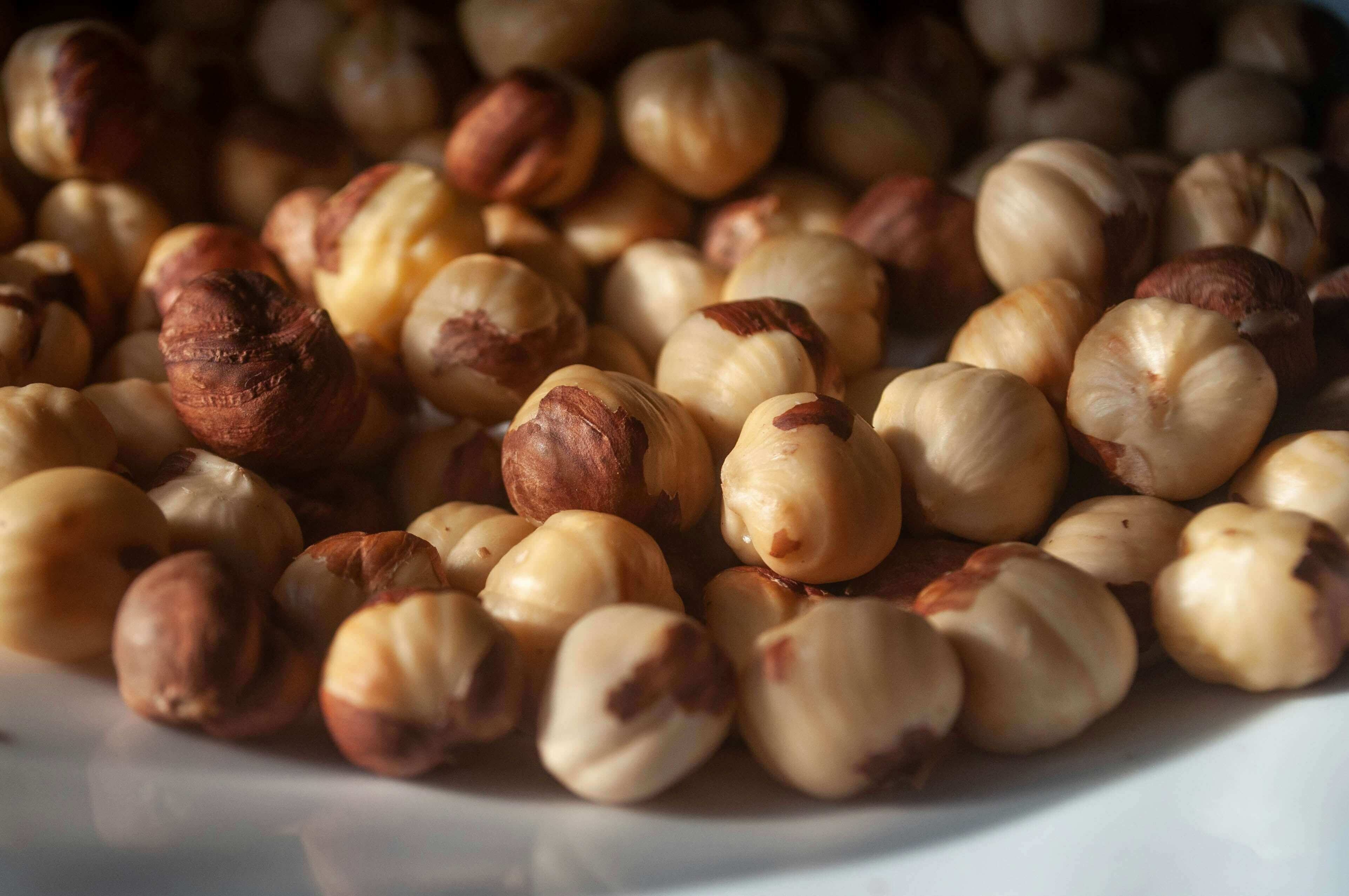
The global demand for hazelnuts continues to rise, driven by the growth of confectionery, bakery, and healthy snack markets. As consumption increases, so does the importance of quality control. Hazelnut processors face mounting pressure to deliver ...
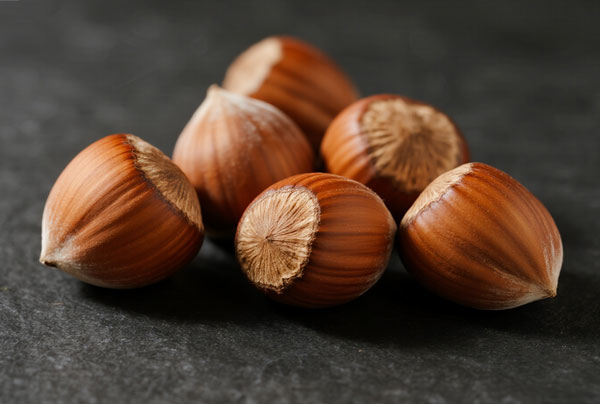
Hazelnuts are widely used in confectionery, bakery, and snacks, where product quality directly affects market value. However, hazelnut processing often faces serious challenges, such as pest infestation, seasonal labor shortages, and inconsistent m...
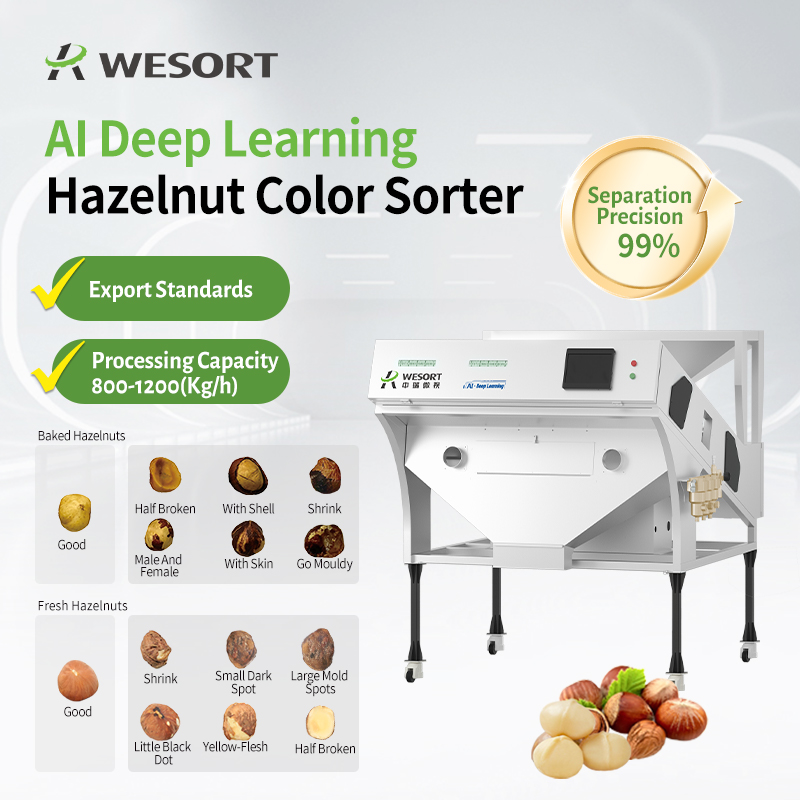
Hazelnut is the nut of the hazel and therefore includes any of the nuts deriving from species of the genus Corylus, especially the nuts of the species Corylus avellana. It is also known as cobnut or filbert nut according to species. A cob is roughl...
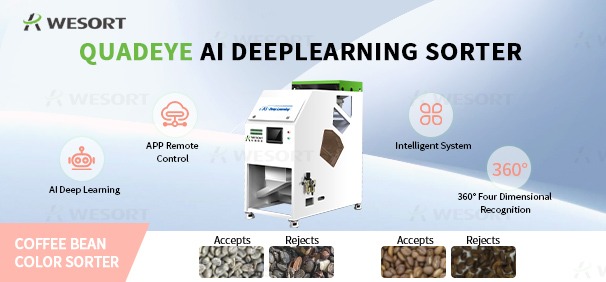
When you enjoy a smooth cup of coffee, you may not realize how much work goes into ensuring its purity and flavor. From harvest to cup, every step matters—and one of the most critical yet often overlooked stages is coffee bean sorting. Common Cof...
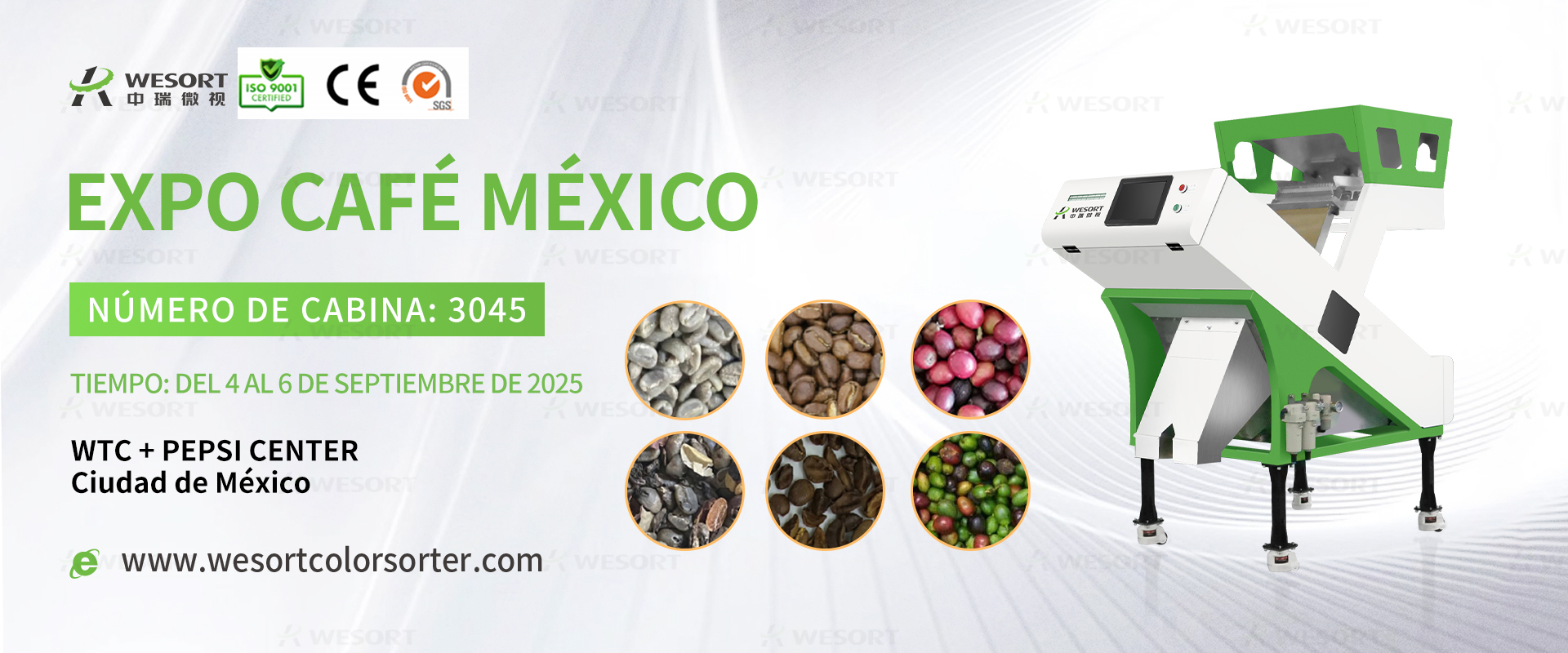
Dear Coffee Industry Partners, The Mexican Coffee Shop Expo 2025 is just around the corner—and WESORT , a leader in intelligent sorting technology, will be there to showcase our core solution for coffee processors: Coffee Bean Color Sorters. Mark...
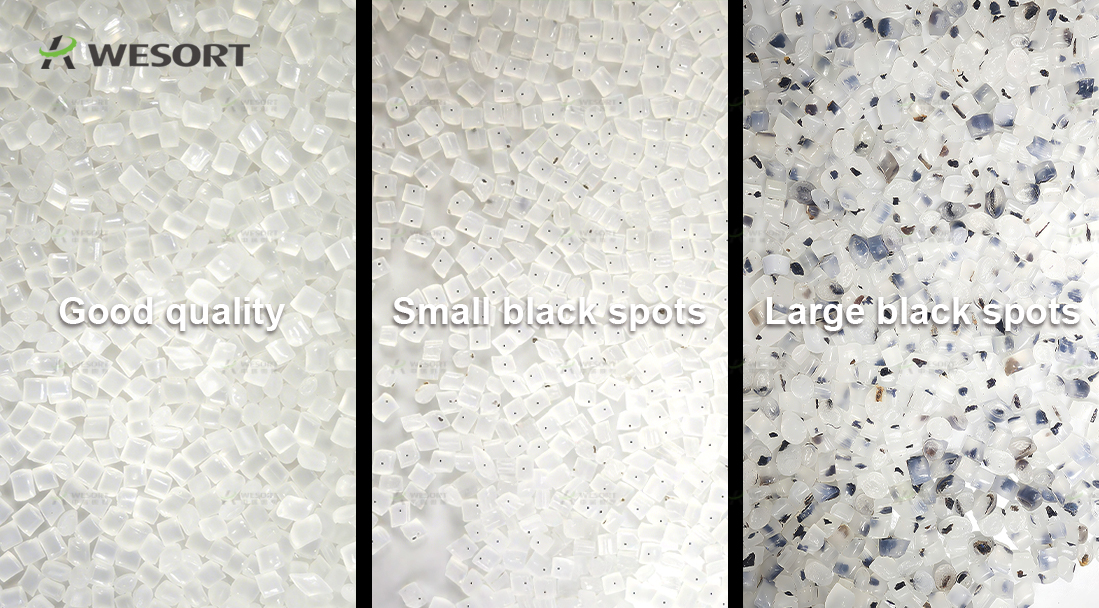
In the plastic pellet production process, color purity often directly determines the product's selling price and market competitiveness. Especially for transparent, white, or light-colored plastic pellets, even tiny black specks can affect the appe...

In modern agriculture, food processing, and recycling, quality control plays a vital role. This is where an optical sorter comes in. Many buyers often ask: What is an optical sorter? What does it do? How much does it cost? And how is WESORT optical...

In the coffee industry, the quality of the final cup often depends on the smallest details during processing. One crucial step is removing defective beans, foreign materials, and color inconsistencies. This is where a coffee bean color sorter plays...

Coffee processing is a complex and meticulous task that involves several stages to transform raw coffee cherries into the high-quality beans we enjoy in our morning brew. One crucial step in this process is the sorting of coffee beans based on thei...

In the world of walnut processing, even the smallest imperfection can significantly impact product quality, market price, and brand reputation. Mold, insect damage, broken pieces, or inconsistent color are common defects that reduce the value of wa...

From green bean exporters to specialty coffee roasters, every producer faces the same challenge: how to remove defects efficiently while protecting valuable beans. Problems such as mold, fermentation damage, insect bites, black beans, broken beans,...

To meet the growing demand for premium and specialty coffee, sorting accuracy must go beyond traditional color-based systems. The QuadEye 360 AI Coffee Bean Sorter, developed by WESORT, represents the next generation of intelligent coffee bean so...

Dear friend, If you are attending World of Coffee Dubai 2026. we would like to invite you to visit WESORT. We will showcase our QuadEye 360 AI Coffee Bean Sorter, featuring 360° four-side inspection, AI deep learning models, near-zero breakage,...

Meta Description: Looking for the top hazelnut sorting machine manufacturer? WESORT offers advanced hazelnut color sorters with AI deep learning to efficiently remove defects, pests, and foreign materials. Boost your hazelnut processing efficienc...